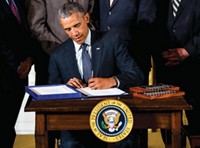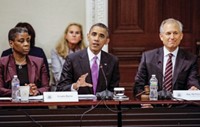Advertisement
Grab your lab coat. Let's get started
Welcome!
Welcome!
Create an account below to get 6 C&EN articles per month, receive newsletters and more - all free.
It seems this is your first time logging in online. Please enter the following information to continue.
As an ACS member you automatically get access to this site. All we need is few more details to create your reading experience.
Not you? Sign in with a different account.
Not you? Sign in with a different account.
ERROR 1
ERROR 1
ERROR 2
ERROR 2
ERROR 2
ERROR 2
ERROR 2
Password and Confirm password must match.
If you have an ACS member number, please enter it here so we can link this account to your membership. (optional)
ERROR 2
ACS values your privacy. By submitting your information, you are gaining access to C&EN and subscribing to our weekly newsletter. We use the information you provide to make your reading experience better, and we will never sell your data to third party members.
Policy
Trade: Future Of Tariff Bill Unclear
by Glenn Hess
January 24, 2012
| A version of this story appeared in
Volume 90, Issue 4
The most pressing trade issue for the chemical industry is the scheduled expiration at the end of 2012 of the U.S. Manufacturing Enhancement Act (H.R. 4380), which allows manufacturers—large and small—to import duty-free raw materials, propriety inputs, and other products that are not made in the U.S.
“It is essentially a tax break for companies that import a product for which there is no domestic manufacturer,” says Lawrence D. Sloan, president of the Society of Chemical Manufacturers & Affiliates, a trade group representing specialty chemical manufacturers. “Many SOCMA members rely on this duty suspension to effectively compete in the global marketplace.”
Although miscellaneous tariff bills have enjoyed broad bipartisan support in the past, it’s unclear how a new proposal will move forward. Republican leaders in the House have said they will no longer allow earmarks, including duty suspensions, as a matter of policy.
Earmarks are defined by the Congressional Research Service as legislative provisions that specify certain congressional spending priorities or are included in revenue bills and apply to a very limited number of individuals or entities.
“SOCMA has already started meeting with members of Congress to educate them on the benefits of the miscellaneous tariff bill, get it on the radar of those staffers and congressmen who are new to the process, and engage with relevant committees that will deal with the legislation,” Sloan says.
Rep. Kevin P. Brady (R-Texas), chairman of the House Ways & Means Subcommittee on Trade, says that “bipartisan, thoughtful, well-vetted projects” should be able to make their way through Congress. Bills to suspend duties on a variety of imported chemicals have been introduced over the past year, but Brady says it’s unclear what the prospects are for consolidating them and passing a miscellaneous tariff bill before the end of 2012.
Members of Congress and industry lobbyists will also be closely following the Obama Administration’s efforts this year to move forward with a proposal for a Trans-Pacific Partnership, a vast free-trade zone spanning the Pacific.
In November, President Barack Obama announced that the U.S. and eight other countries—including Australia, New Zealand, Singapore, and Vietnam—had agreed on the “broad outlines” of a framework to increase trade and investment in the Asia-Pacific region.
Last month, Deputy U.S. Trade Representative Demetrios Marantis told the House trade subcommittee that the Administration hopes to wrap up negotiations and put a formal proposal on the table by the end of the year. The pact is expected to offer the prospect of lower tariffs and improved market access for chemical manufacturers and other U.S. industries in the fast-growing nations of the Pacific Rim.




Join the conversation
Contact the reporter
Submit a Letter to the Editor for publication
Engage with us on Twitter